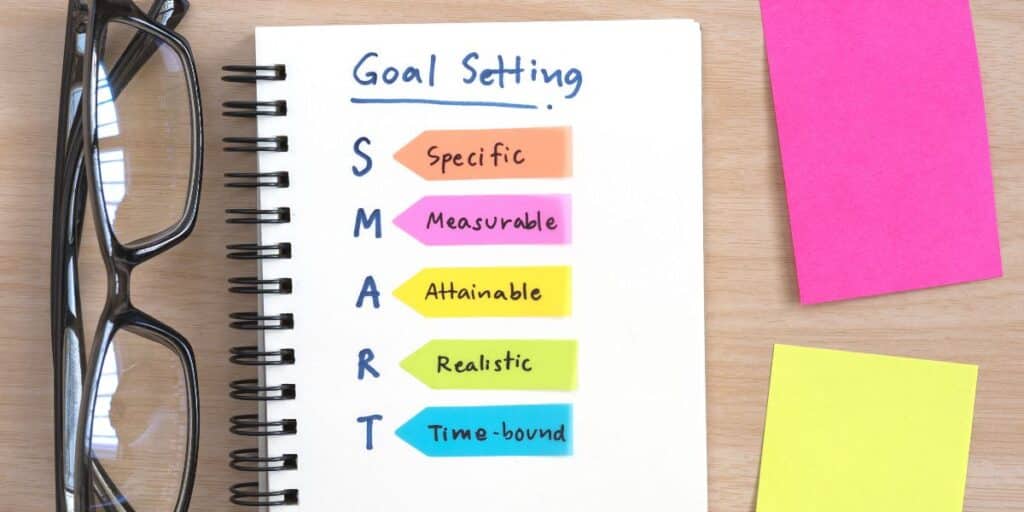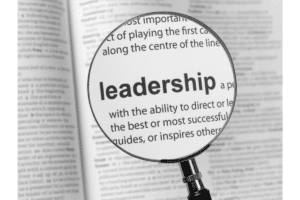Are you looking for ways to enhance your personal and professional journey towards success? In a world full of opportunities and challenges, mastering the art of success can be a transformative experience. Whether you aspire to excel in your career, relationships, or personal growth, understanding the proven strategies can set you on the right path.
Setting clear and specific goals is a fundamental step towards achieving success. By outlining your ambitions with precision, you create a roadmap that guides your actions and decisions. Developing a strategic plan tailored to your objectives enhances focus and productivity, propelling you closer to your desired outcomes.
Discipline and continuous learning are key ingredients in the recipe for success. By staying dedicated to your goals and remaining focused amidst distractions, you cultivate the perseverance needed to overcome obstacles. Embracing a mindset of growth and adaptability empowers you to evolve and innovate, essential traits in a dynamic environment.
Balancing work and personal life is crucial for sustained success. Prioritizing self-care and well-being ensures that you maintain the energy and enthusiasm needed to pursue your goals effectively. By nurturing your holistic growth, you lay a strong foundation for long-term achievement and fulfillment.
In a journey towards success, remember that each individual’s path is unique. Embrace your uniqueness, lead with confidence, and believe in your innate potential to carve a fulfilling and prosperous life. Stay tuned as we delve deeper into the 10 proven ways to succeed in life, unlocking the strategies that can propel you towards your aspirations.
Set Clear Goals
Setting clear goals is crucial in the pursuit of success, both personally and professionally. By establishing specific objectives and outlining a realistic path to achieve them, individuals can stay focused and motivated. Here are some key strategies to effectively set clear goals:

Be Specific and Measurable
When setting goals, it’s essential to be specific and precise about what you want to accomplish. Vague goals make it challenging to track progress and determine success. By clearly defining your objectives, you create a roadmap that guides your actions and decisions.
Setting measurable goals is equally important. Incorporate quantifiable metrics, such as deadlines, numerical targets, or milestones, to assess your progress objectively. Measuring your achievements provides a sense of accomplishment and allows for adjustments if needed.
To learn more about the importance of setting specific and measurable goals, check out 10 tips to set goals and achieve them.
Create a Realistic Timeline
In addition to specificity and measurability, establishing a realistic timeline is essential for goal setting. A timeline helps in organizing tasks, prioritizing activities, and allocating resources effectively. By breaking down larger goals into smaller, manageable steps with associated deadlines, you can maintain momentum and prevent procrastination.
Scheduling buffer time within your timeline allows for unexpected delays or challenges that may arise along the way. Flexibility in your timeline ensures adaptability without compromising the overall objective. By adhering to a well-defined schedule, you can stay on track and steadily progress towards your goals.
For more insights on creating achievable timelines, explore 5 Ways to Set More Achievable Goals.
Remember, setting clear goals with specificity, measurability, and realistic timelines is a fundamental strategy for success in all aspects of life. By outlining your aspirations and mapping out actionable steps, you empower yourself to make tangible progress towards your dreams and ambitions.
Continuous Learning
In a world that never stops evolving, embracing continuous learning is key to unlocking a successful and fulfilling life journey. By actively engaging in ongoing education and self-improvement, individuals can stay relevant, adaptable, and ahead of the curve. Let’s explore two fundamental aspects of continuous learning that can propel you towards personal and professional success.
Embrace Curiosity and Growth Opportunities
Curiosity is the engine that drives continuous learning. By nurturing a sense of wonder and a desire to explore new horizons, you open yourself up to a world of possibilities. Embrace challenges as opportunities for growth rather than obstacles to be avoided. Curious minds are constantly seeking knowledge, asking questions, and pushing boundaries.
Cultivate a growth mindset that thrives on challenges and sees failures as learning experiences. Every setback is a chance to gather insights, refine your approach, and move closer to your goals. Stay curious, stay hungry for knowledge, and watch how your personal and professional life flourish.
Seek Feedback and Constructive Criticism
Feedback is a valuable tool for continuous improvement. Actively seek input from mentors, peers, and colleagues to gain fresh perspectives and identify areas for development. Constructive criticism, when received with an open mind, can be a powerful catalyst for growth.
By welcoming feedback, you demonstrate a willingness to learn and evolve. Embrace the feedback loop as a mechanism for ongoing refinement, honing your skills, and enhancing your performance. Remember, feedback is not a sign of weakness but a sign of strength in your commitment to self-improvement.
Stay tuned for more proven ways to succeed in life by nurturing a mindset of continuous learning and growth.
For more insights on the benefits of continuous learning, check out What is Continuous Learning and What are its Benefits?
Develop Self-Discipline
Self-discipline is a vital trait that can propel you towards personal and professional success. By cultivating self-discipline, you can enhance productivity, achieve goals, and overcome obstacles effectively. Developing self-discipline requires commitment and consistency in your daily practices. Here are two key strategies to help you strengthen your self-discipline:

Establish Daily Routines and Habits
Creating daily routines and habits can provide structure and stability to your life, helping you stay focused and disciplined. Start by setting specific daily goals and breaking them down into manageable tasks. Establishing a routine around essential activities such as exercise, work, and relaxation can aid in developing self-discipline. Consistency in your routines can reinforce positive behaviors and reduce procrastination.
Prioritize Important Tasks
Prioritizing important tasks is crucial for honing self-discipline. Identify tasks that align with your long-term goals and focus on completing them first. By distinguishing between urgent and important tasks, you can allocate your time and energy efficiently. Setting priorities enables you to make informed decisions and avoid distractions that may hinder your progress. Keep a priority list to stay organized and on track towards achieving your objectives.
To learn more about developing self-discipline and its role in success, check out this article on self-discipline that provides valuable insights and practical tips. Cultivating self-discipline is a continuous journey that requires dedication and perseverance. By incorporating these strategies into your daily life, you can enhance your self-discipline and pave the way for personal and professional growth.
Maintain Work-Life Balance
Finding the equilibrium between work and personal life is crucial for overall well-being and success. In today’s fast-paced world, juggling career demands with personal time can be challenging. Here are some effective strategies to help maintain a healthy work-life balance:
Set Boundaries and Learn to Delegate
Setting boundaries is essential to avoid burnout and maintain a healthy balance between work and personal life. Learn to prioritize tasks based on importance and urgency. Delegate responsibilities when necessary to avoid spreading yourself too thin. Understanding your limits and respecting your personal time is key to creating a sustainable work-life balance.
Incorporate Relaxation and Leisure Activities
Incorporating relaxation and leisure activities into your daily routine is vital for reducing stress and improving overall well-being. Allocate time for hobbies, exercise, or simply unwinding with loved ones. Engaging in activities that bring you joy and relaxation can help recharge your energy levels and boost productivity in the long run.
Striking a balance between work and personal life requires mindful planning and self-awareness. By setting boundaries, delegating tasks effectively, and prioritizing relaxation, you can create a sustainable work-life balance that enhances both your professional and personal success.
For more tips on maintaining work-life balance, you can visit 12 Tips to Achieve and Maintain a Good Work-Life Balance or Work Life Balance.
Stay Persistent and Resilient
Facing obstacles on the journey to success is inevitable, but your ability to stay persistent and resilient can make all the difference. Here’s how you can cultivate these qualities:
Embrace Failures as Learning Opportunities
Embracing failures is a crucial aspect of growing and achieving success. Rather than viewing failures as setbacks, see them as valuable learning opportunities. According to a study by Harvard Business Review, leaders who embrace failure’s lessons unlock improvement opportunities that would otherwise be missed. Reflect on past failures, analyze what went wrong, and extract key lessons that can guide you towards future success. Remember, every stumble is a chance to learn, grow, and come back stronger.
Adapt to Changes and Challenges
In the pursuit of success, adaptability is a key trait that can set you apart. Be open to change and willing to pivot when faced with new challenges. Forbes highlights 13 effective ways for leaders to embrace failures as opportunities, emphasizing the importance of celebrating learning from failures. By cultivating a mindset that embraces change and challenges, you position yourself to navigate uncertainties with grace and resilience. Remember, adaptability is not about avoiding challenges but about confronting them with a positive attitude and a willingness to learn and evolve.
Network and Build Relationships
Building a strong network and fostering relationships can significantly contribute to personal and professional success. Connecting with mentors and like-minded individuals can provide valuable guidance and insights. Mentors serve as experienced advisors who can offer wisdom and support in navigating challenges and seizing opportunities. Surrounding yourself with individuals who share similar goals and values can create a supportive environment for growth and learning.

Connect with Mentors and Like-Minded Individuals
Seek out mentors who have achieved success in areas you aspire to excel in. Their guidance and mentorship can help you avoid common pitfalls and accelerate your personal and professional development. By connecting with like-minded individuals, you can exchange ideas, collaborate on projects, and motivate each other to reach new heights. Building a network of supportive peers can cultivate a sense of community and accountability on your journey towards success.
Attend Networking Events and Conferences
Networking events and conferences provide valuable opportunities to expand your network and meet new people from diverse backgrounds. These events offer a platform to exchange contacts, share experiences, and build relationships with professionals in your industry. By actively participating in networking events, you can enhance your visibility, establish credibility, and open doors to potential collaborations and career prospects. Engaging with a wider network can broaden your perspective and introduce you to fresh ideas and perspectives.
Investing time and effort in networking and relationship-building endeavors can yield long-term benefits for your personal and professional growth. By nurturing meaningful connections and fostering mutually beneficial relationships, you can create a solid foundation for success in various aspects of your life.
For more information on networking and relationship-building strategies, you can refer to resources like Networking and Relationship Building for Career Success and How Leaders Create and Use Networks.
Prioritize Health and Wellness
Maintaining a focus on your health and wellness is crucial for achieving success in both personal and professional endeavors. By prioritizing your well-being, you lay a strong foundation for a productive and fulfilling life.
Exercise Regularly and Maintain a Balanced Diet
Regular exercise and a balanced diet play key roles in enhancing both physical and mental well-being. Engaging in physical activity like walking, jogging, or yoga not only boosts your physical fitness but also has numerous mental health benefits. According to the Centers for Disease Control and Prevention, being physically active can improve brain health, help manage weight, reduce the risk of diseases, strengthen bones and muscles, and enhance overall well-being.
Maintaining a balanced diet that includes a variety of nutrients is essential for providing your body with the fuel it needs to function at its best. Incorporating fruits, vegetables, whole grains, lean proteins, and healthy fats into your meals can help support your immune system, improve your energy levels, and contribute to better overall health.
Practice Mindfulness and Stress Management Techniques
In our fast-paced world, stress management is crucial for maintaining a healthy lifestyle. Introducing mindfulness practices into your daily routine can have a profound impact on reducing stress and improving mental clarity. Studies, like those mentioned by the American Psychological Association, have shown that mindfulness-based stress reduction techniques can lead to decreased anxiety, depression, and overall stress levels.
Incorporating mindfulness activities such as deep breathing exercises, meditation, or yoga can help you stay present, reduce negative thinking patterns, and increase your overall sense of well-being. By incorporating these techniques into your daily life, you can better manage stress, improve your focus, and cultivate a more positive outlook on life.
Prioritizing your health through regular exercise, a balanced diet, mindfulness, and stress management techniques not only improves your physical health but also enhances your mental well-being. By making your health a priority, you set yourself up for success in all areas of your life.
Celebrate Achievements and Milestones
Celebrating your achievements and milestones is an essential part of the journey to success. Recognizing your successes not only boosts your morale but also motivates you to aim higher and reach for new goals.

Reflect on Successes and Set New Goals
Taking a moment to reflect on your achievements allows you to appreciate how far you’ve come. It’s a time to acknowledge the hard work and dedication that went into reaching your goals. Reflecting on your successes also provides valuable insight into what strategies worked well and what areas you can improve on.
Setting new goals is the natural progression after celebrating a milestone. By establishing new objectives, you keep the momentum going and continue to push yourself towards greater success. Whether it’s personal or professional goals, setting targets gives you a clear direction and something to strive for.
To learn more about celebrating milestones at work and recognizing team achievements, check out this insightful article on Celebrating Milestones at Work.
Share Success with Loved Ones and Supporters
Celebrating your achievements becomes even more meaningful when you share them with your loved ones and supporters. Whether it’s your family, friends, or mentors, involving them in your success adds a sense of community and shared joy.
Sharing your success stories can inspire others and create a positive ripple effect. It also allows you to express gratitude towards those who have supported you along the way. Celebrating together strengthens relationships and fosters a supportive network that continues to uplift you in your journey.
Discover more about the importance of celebrating milestones and how it provides structure and psychological benefits in this article on The Importance of Celebrating Milestones.
Remember, celebrating your achievements and milestones not only acknowledges your hard work but also propels you towards greater heights of success. Share your successes, set new goals, and bask in the glow of your accomplishments as you continue on your path to personal and professional fulfillment.
Conclusion
In conclusion, the journey to success is paved with ten proven ways to succeed in life. Setting clear and specific goals, developing a solid plan, staying disciplined and focused, continuous learning, embracing failure as a stepping stone to success, maintaining a positive attitude, surrounding yourself with supportive individuals, managing time effectively, taking care of your physical and mental well-being, and never giving up are the essential pillars to reach your aspirations and ambitions. Remember, success is a marathon, not a sprint, and each of these strategies plays a crucial role in your personal and professional growth. By integrating these principles into your daily life, you pave the way for a fulfilling and successful future. How to succeed is not just a question; it’s a journey that starts with these ten fundamental steps.
Related Links:












